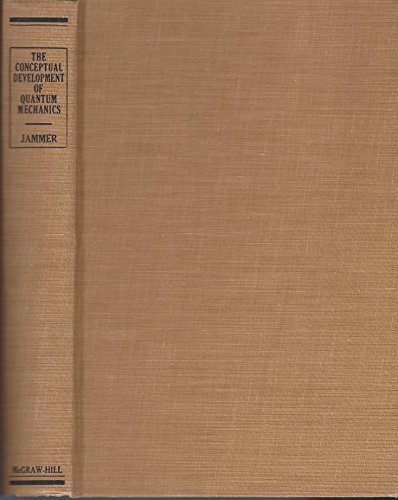The Conceptual Development of Quantum Mechanics pdf download
Par phelps louis le mardi, septembre 6 2016, 02:46 - Lien permanent
The Conceptual Development of Quantum Mechanics. Max. Jammer

The.Conceptual.Development.of.Quantum.Mechanics.pdf
ISBN: 0070322759,9780070322752 | 412 pages | 11 Mb

The Conceptual Development of Quantum Mechanics Max. Jammer
Publisher: MGH
More information and software credits. Gao, Shan (2013) Interpreting Quantum Mechanics in Terms of Random Discontinuous Motion of Particles. Barbour states that 'no sharp line can be drawn between the process of observation and what is observed thus conventional concepts inevitably enter our attempts to picture what is going on in atomic world'. First, we argue that the wave function in Philsci Archive is powered by EPrints 3 which is developed by the School of Electronics and Computer Science at the University of Southampton. Science produces theories that are in a continuous state of change and development. This is the latest version of this This thesis is an attempt to reconstruct the conceptual foundations of quantum mechanics. This is a These constructs that are needed to put all experimental data and observations in a coherent conceptual model that is meant to only explain the known phenomena, but also predict yet unconfirmed ones. This essay will discuss some of the implications on quantum mechanics furthermore how this was developed by theorists for instance Planck theory on black body radiation, Einstein theory on the photoelectric effect and Bohr's atom model and many more. In terms of physics, while Schrödinger's contribution to the development of quantum physics was pivotal, it ends up seeming like a bit of an aberration, with his late-career turn to dabbling in biology and Vedic philosophy looking a little more typical. He was, however, renowned as an excellent Contemplating the infinite is a much nicer route than contemplating the tawdry, to get on the path of eagerly wrestling with difficult concepts. One of the unique and most innovative aspects of quantum mechanics is the concept that the state of any subatomic particle cannot be known before it is measured. It is often claimed that quantum mechanics or quantum phenomena disprove the principle of causality or at least cast doubt on whether it is a logically defensible axiom. The ideas expressed in ancient Chinese culture and philosophy, however, were supposedly “developed in isolation” from the rest of the world. In my paper, I will attempt to explain how the foundations of “Eastern” religions resemble the foundations of quantum theory (if they do not prove to be identical), and how the concepts of quantum physics identify with the concepts underlying these religions and philosophies.